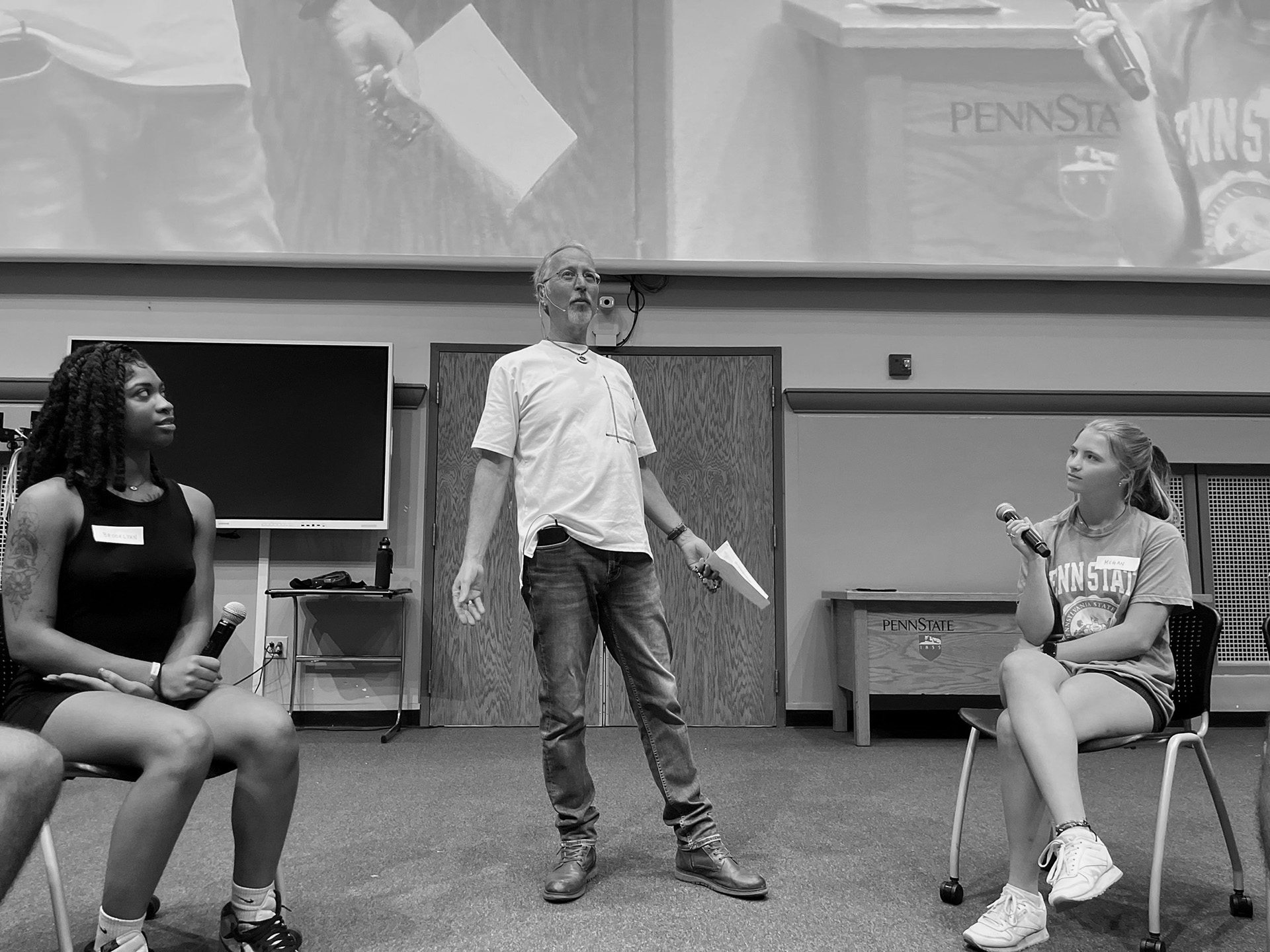
1991
Our Roots: SOC119
Dr. Sam Richards began teaching Sociology (SOC) 119 in 1991. Since then it has become the largest course on race and culture in the US. In this class, Dr. Richards had the idea to employ a team of undergraduate students to lead weekly breakout sessions. In order to realize this vision, his colleague (and wife), Dr. Laurie Mulvey, volunteered to train a small group of teaching assistants each semester. As the class and the success of the breakout sessions grew, Drs. Mulvey and Richards (Sam and Laurie) both wondered how to do more work with these skilled student facilitators once the semester was finished.
1991

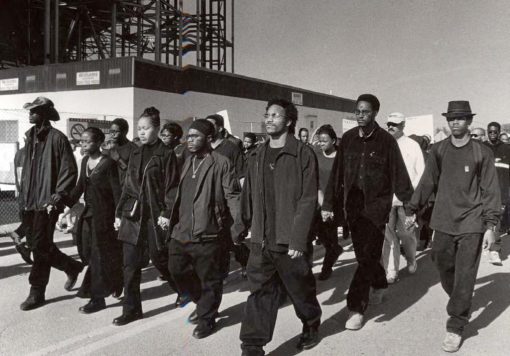
2002
Student Activism
The student community at PSU was activated following death threats to the president of Black Caucus. In the wake of the uprising on campus, two local alumni wanted to contribute to a project that could address race issues in a new way. Sam had the idea to apply the model of his Soc 119 breakout sessions to a campus-wide dialogue initiative that would encourage the entire student community to participate in this conversation. The alumni liked his idea and as a result, seed funding was given, and the Race Relations Project was born.
2002

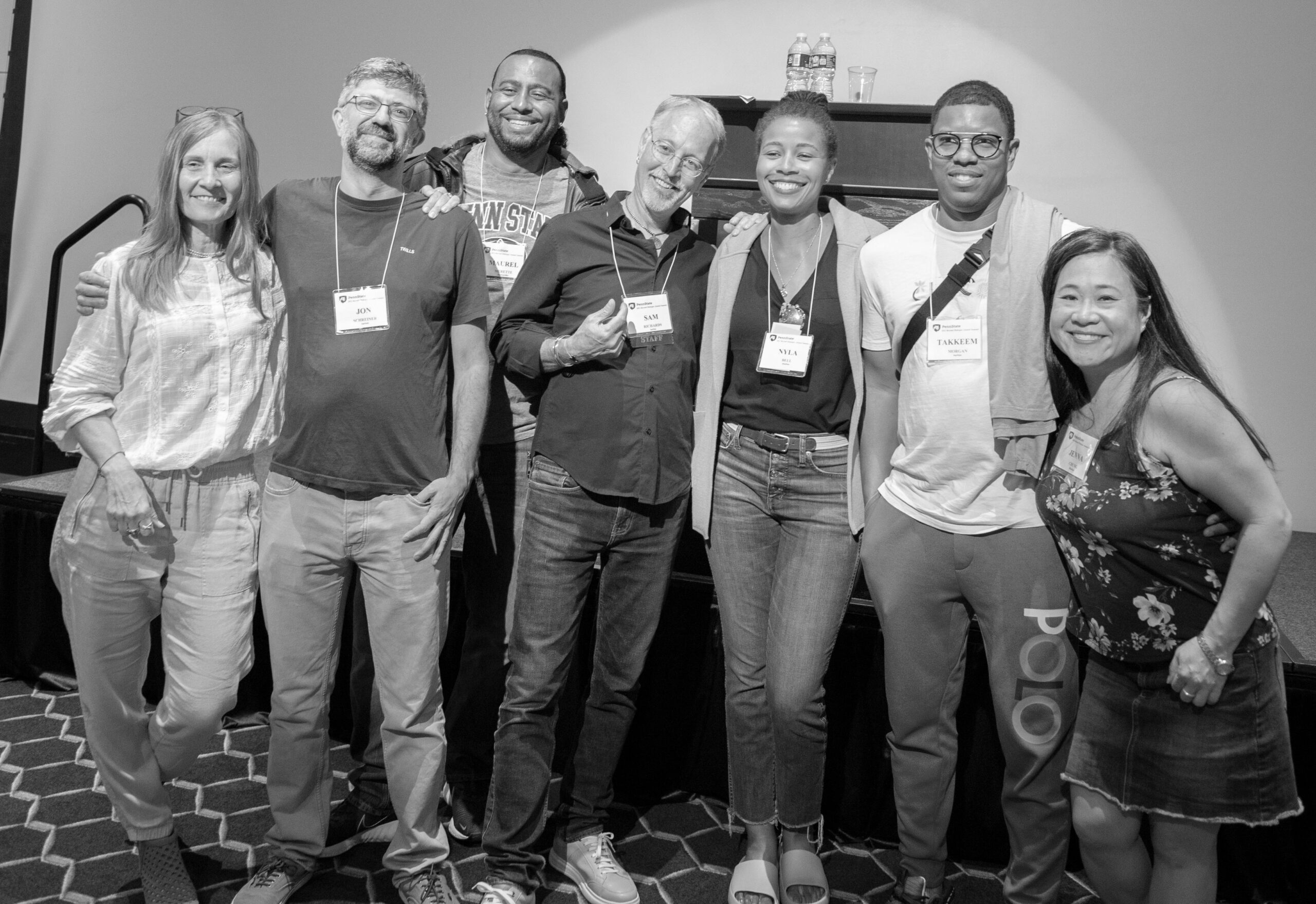
2003
Our First Facilitators
The original six facilitators were selected to participate in this fledgling endeavor from a pool of the SOC 119 facilitators who were recognized as the most skilled in encouraging dialogue. With relatively limited experience--but immense trust in a simple vision of the power of conversation, this group followed the leadership of Sam and Laurie, successfully facilitating 135 discussions outside of the classroom that first year. They led dialogues on dorm floors, in fraternities and sororities, in meetings of student groups, as well as in a handful of university classes. It was a gutsy beginning, but positive attitudes and meaningful conversations set the foundation for a rapidly expanding project.

2003
2004
A Methodology is Born
After establishing alliances with offices and colleges across campus, the Race Relations Project committed itself to using a version of the Socratic Method to encourage participants to examine issues through questions rather than conclusions, through dialogue rather than debate. That was a significant moment in defining the co-curricular relevance and unique educational mission of the dialogues.
2004
2006
The Race Relations Project grew...a lot.
Over the next several years, these campus dialogues grew to over one thousand per year--which was a huge leap that involved selecting and training additional facilitators, hiring a full time staff member and expanding into multiple offices to manage the increasing volume of work.
2006
2010
Evolving Dialogues
Although “U.S. race relations” remained the central focus, that deep and extensive examination led to the expansion of our concerns into any realm where human suffering, conflict and inequity intersect. Conversations also began to address issues related to gender and faith, local concerns related to student life (such as drinking and sexual assault), as well as a range of international issues. With this expansion came a new name--World in Conversation Project. And the changes didn’t stop there.
2010
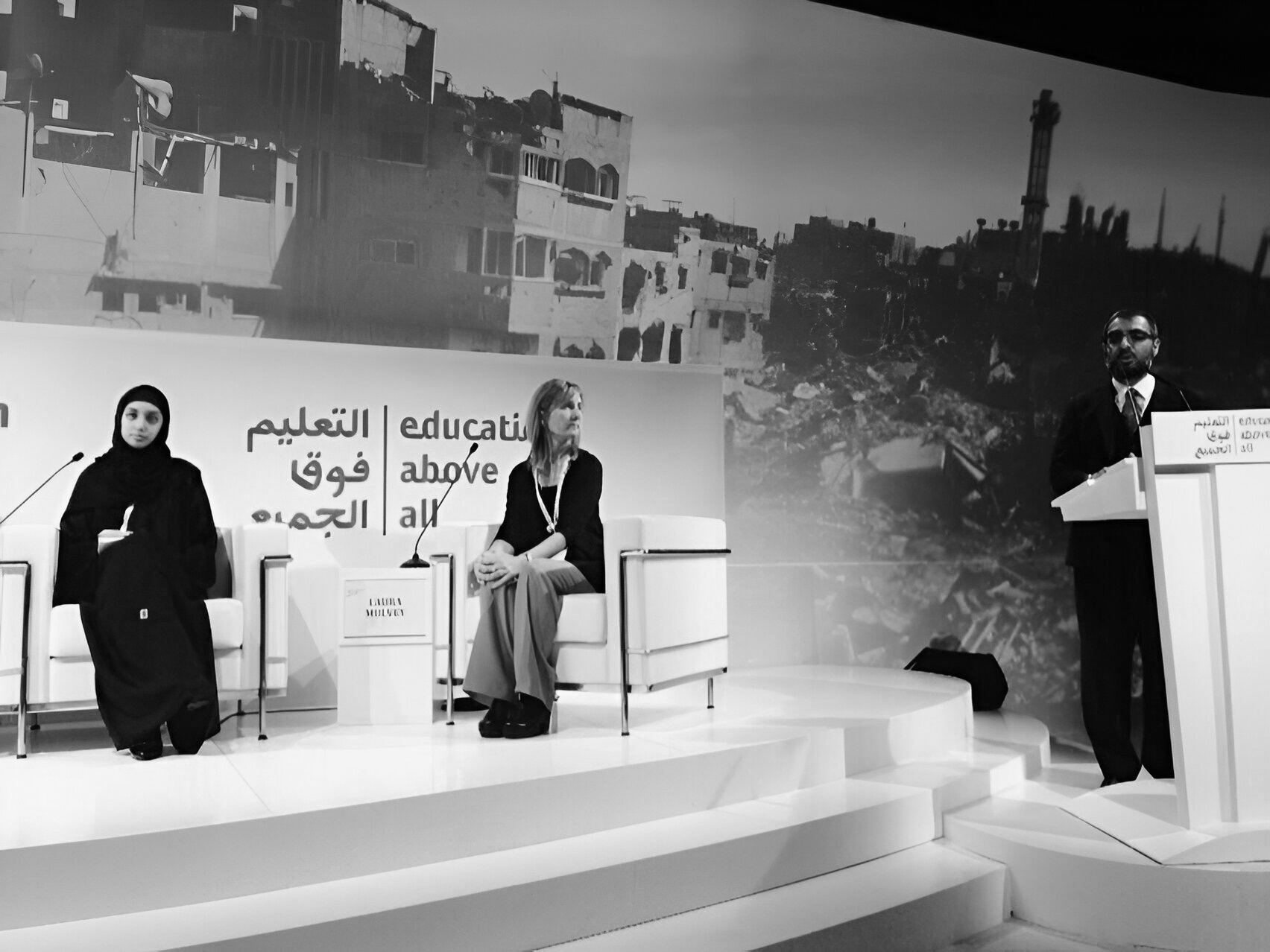
2011
Going International
While the topics of the dialogues were expanding, so too was the medium. Through chance meetings with several colleagues in Qatar, as well as a collaboration with the United Nations Development Programme, Penn State student facilitators began to facilitate conversation with their peers around the world via Skype, Google Hangout, and other video-conferencing platforms.
2011

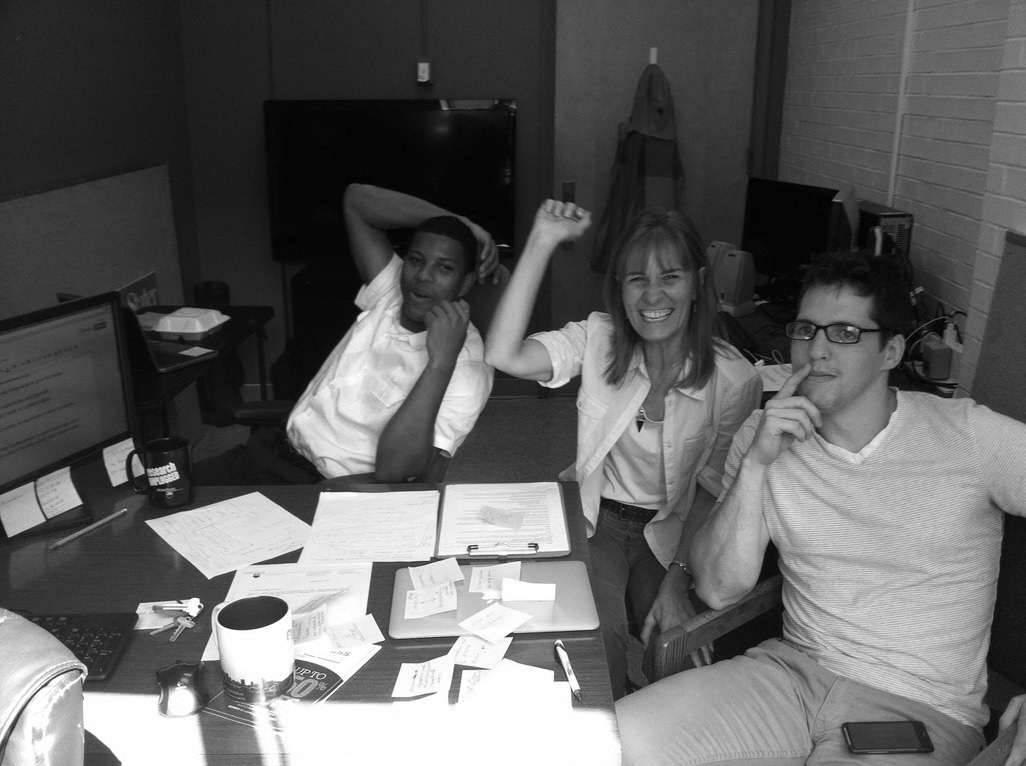
2012
A New Mission Statement is Born
Takeem Morgan, Laurie Mulvey and Timothy Taylor celebrate writing World in Conversation’s mission statement.
2012

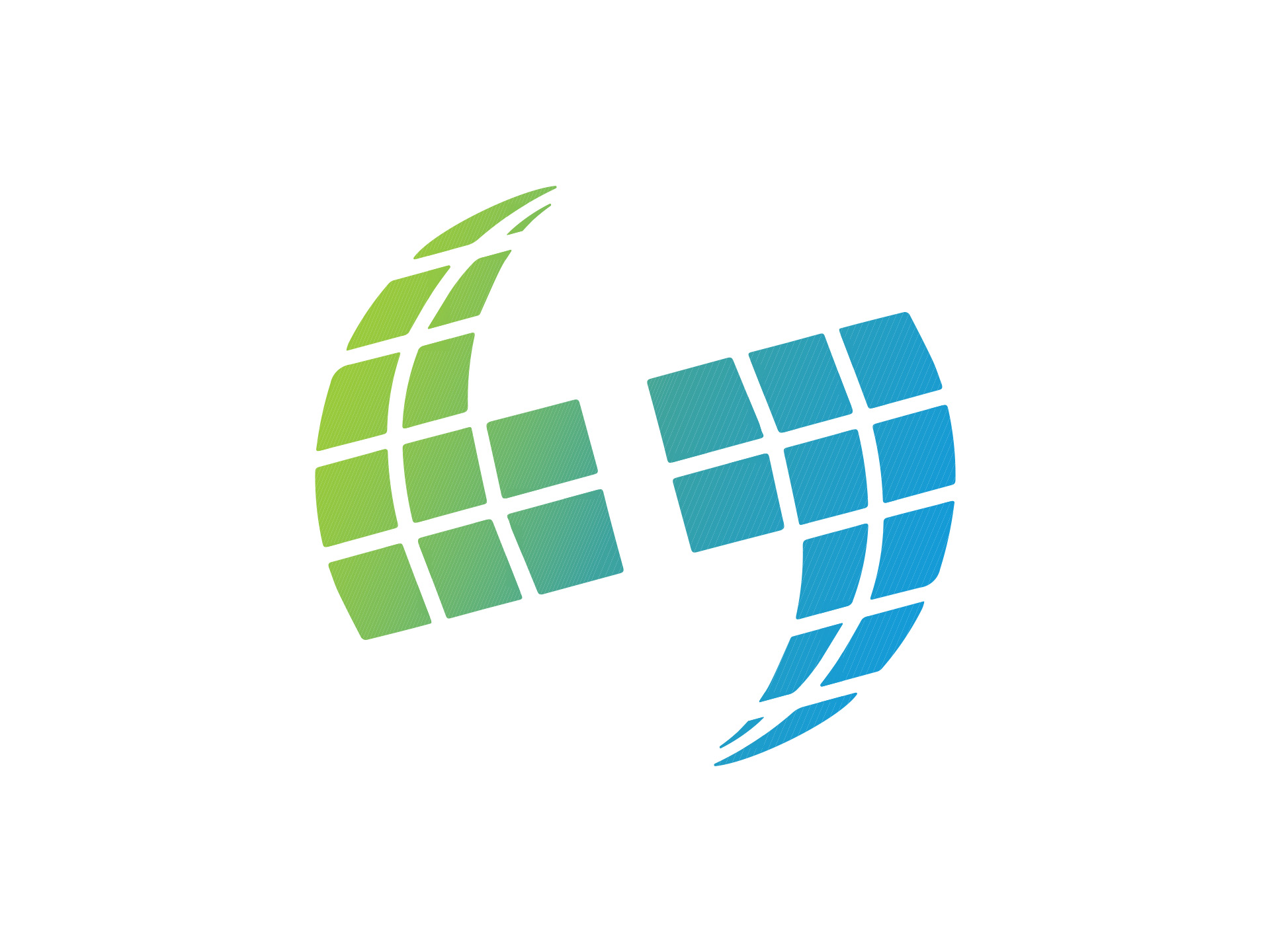
2013
World in Conversation becomes a Center for Public Diplomacy
World in Conversation becomes a Center for Public Diplomacy in the College of the Liberal Arts, training undergraduates to use dialogue as a grassroots method for cross-cultural collaboration (both locally and globally).
2013

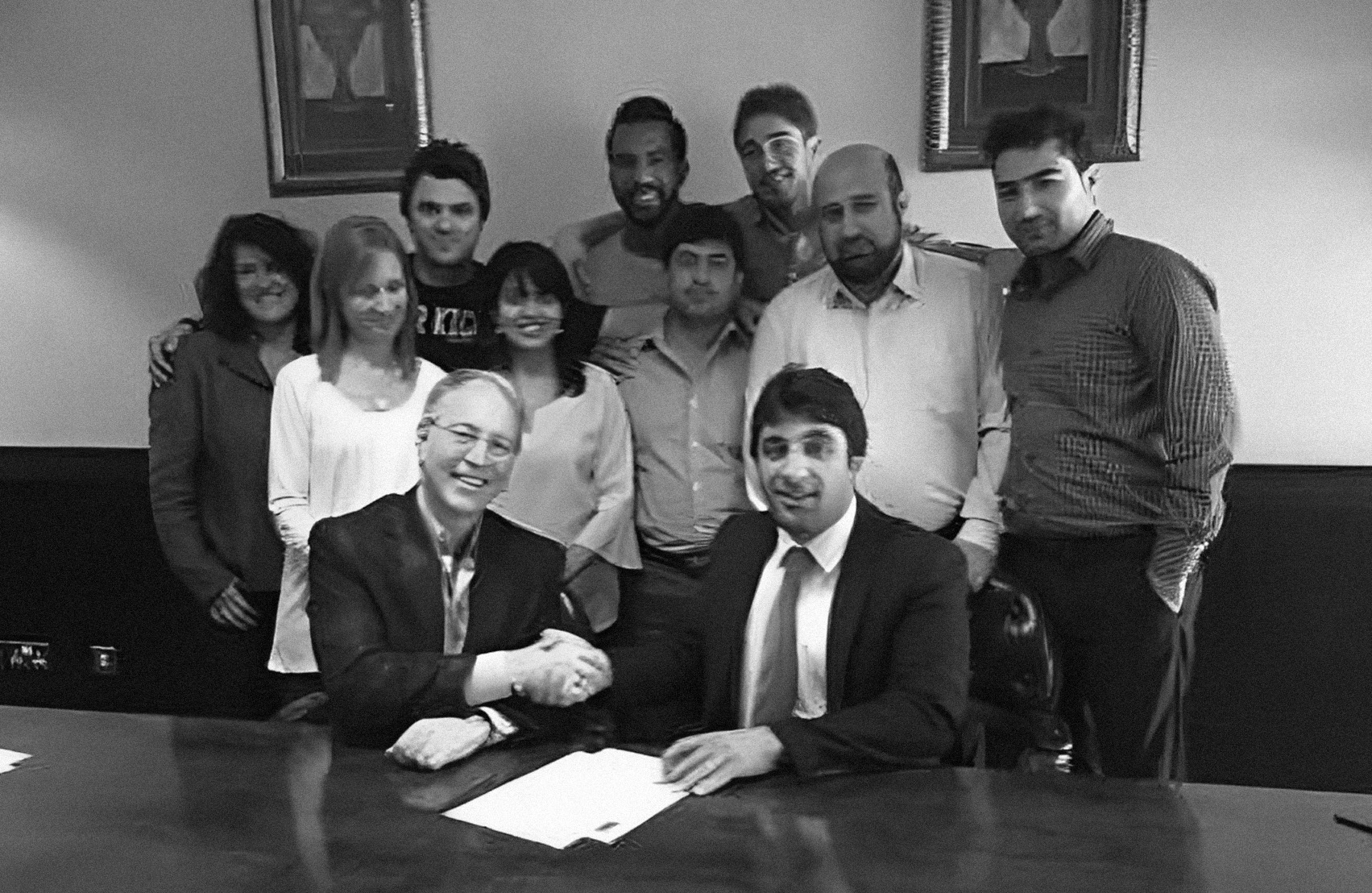
2014
Our Reach Expands
World in Conversation is now reaching more than 8,000 participants a year, locally and globally.At the same time, our work is receiving the attention of some forward-thinking colleagues at NATO Headquarters in Norfolk Virginia as a result of a conference facilitated by Laurie and Sam. Their conversations inspire a series of pilot dialogues that eventually developed into a 3-year grant with NATO’s Science for Peace and Security Program. The grant allows us to create an infrastructure to host online dialogues between NATO cadets (in over a dozen countries across the Alliance) and Afghan civilians. Although this initiative receives the most public attention at this time, U.S. race relations still accounts for eighty-five percent of our programming.
2014

2015
10,000 Dialogues Completed
In the fall of 2015, the center completed and exceeded over 10,000 dialogues since its inception.
2015
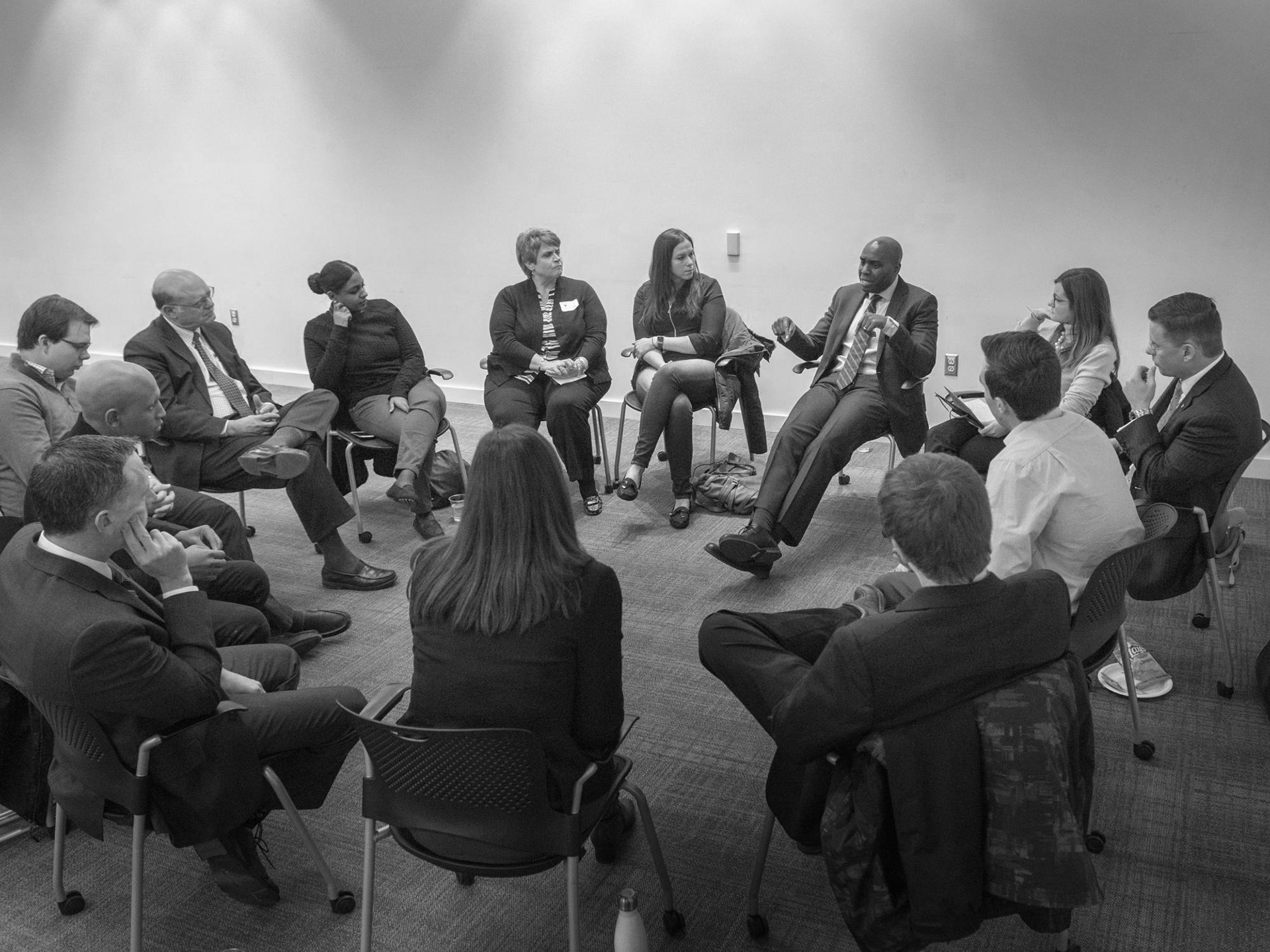
2017
A New Era in Dialogue Methodology
This year marked a fundamental conceptual restructuring of our race and culture dialogues so that participants can be invited to engage each other more candidly--and more sociologically. Our research and developments efforts began to analyze more intensively not just group dynamics and communication technologies, but the narratives and rhetoric that form the substance of contentious cultural conversations. As a result, our facilitator training made a significant turn toward techniques for challenging narratives that prevent authentic reflection and examination.
2017

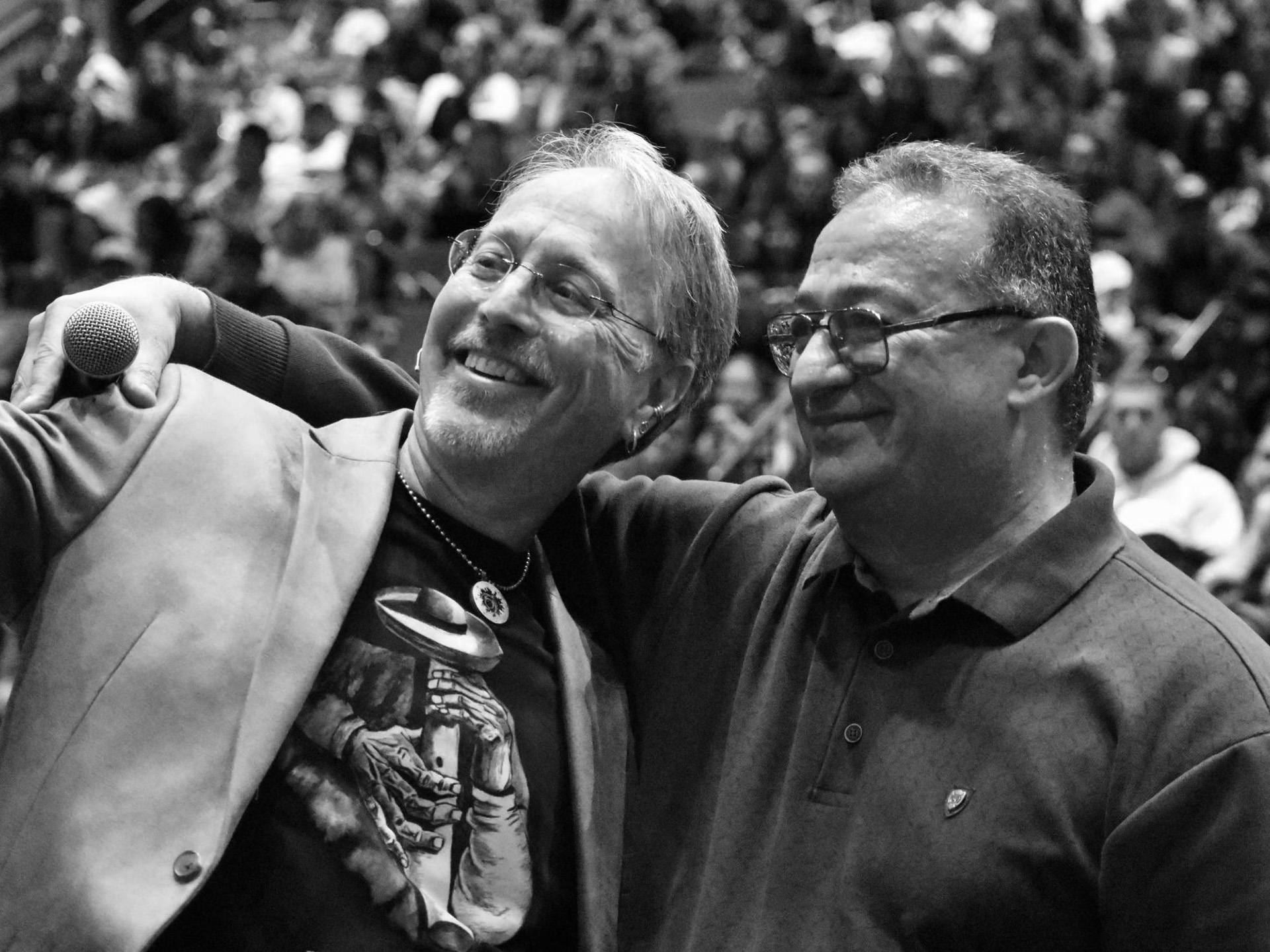
2018
Global Partnerships Deepen
While World in Conversation has always had it’s doors open to visitors, this year we hosted our first team of partners interested in living alongside us for a week in order to enhance the work they were doing back home. Founders of Colombia Se Escucha immersed themselves in classes, meetings, workshops, more meetings, and conversation after conversation to gain a deep understanding of how World in Conversation operates. This level of hosting was a first for us.
In the spring 2018 semester, a longtime friend of SOC 119 and the Center was able to visit Penn State’s University Park campus. Basim Razzo, an Iraqi man who lived in the United State in the 1980’s for school, was able to come back to talk about his life in a war-torn area of the world. In addition, he was able to share how his life was affected by the war, and what he wants to do beyond the class. This visit led to an even deeper, more authentic partnership for all moving forward. In addition, this year marks the seventh year of our Global Dialogue Initiative, and we find ourselves having engaged with 30 different countries since its inception.
In the spring 2018 semester, a longtime friend of SOC 119 and the Center was able to visit Penn State’s University Park campus. Basim Razzo, an Iraqi man who lived in the United State in the 1980’s for school, was able to come back to talk about his life in a war-torn area of the world. In addition, he was able to share how his life was affected by the war, and what he wants to do beyond the class. This visit led to an even deeper, more authentic partnership for all moving forward. In addition, this year marks the seventh year of our Global Dialogue Initiative, and we find ourselves having engaged with 30 different countries since its inception.
2018

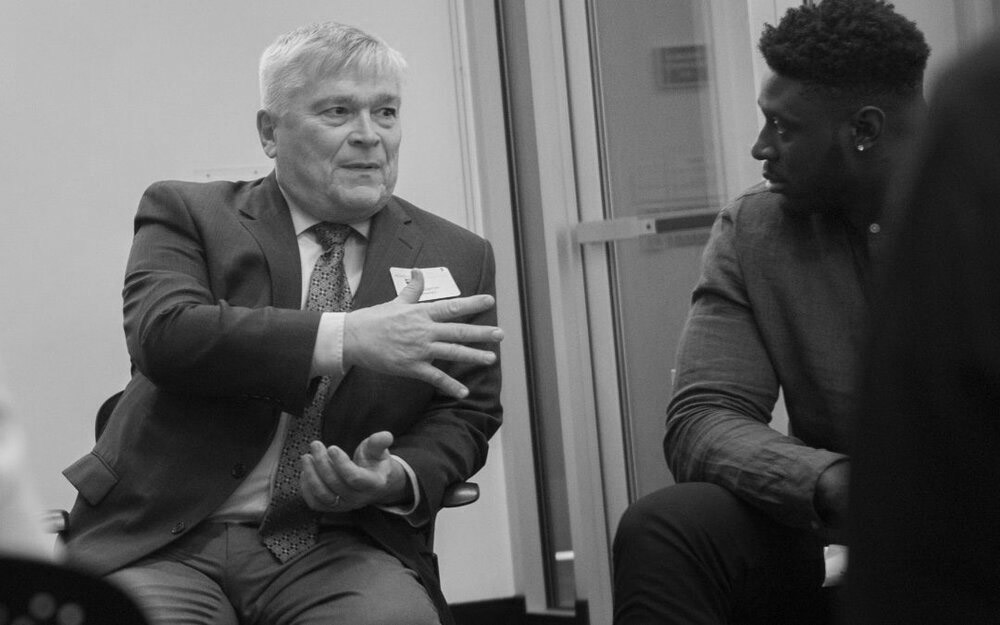
2019
Our First Day of Dialogue
On Monday, January 21st, 2019, World in Conversation (in partnership with the Office of the President and the Office of the Vice Provost for Educational Equity) hosted the first ever “Day of Dialogue” during which more than 600 Penn State administrators, faculty, staff, and students participated in a facilitated dialogue. The event is described in detail in this article. As it shares, “The inspiration for the Day of Dialogue grew out of a series of World In Conversation-led discussion groups held two years ago between student leaders and University administrators, including Penn State President Eric Barron. The initial success of those discussions was encouraging, and it was thought that an expanded program might be beneficial — and possible.” And it was.
In addition, in May of 2019, we published a free online book, an introductory text about dialogue facilitation entitled, Transforming Conflict and Collaboration.
2019

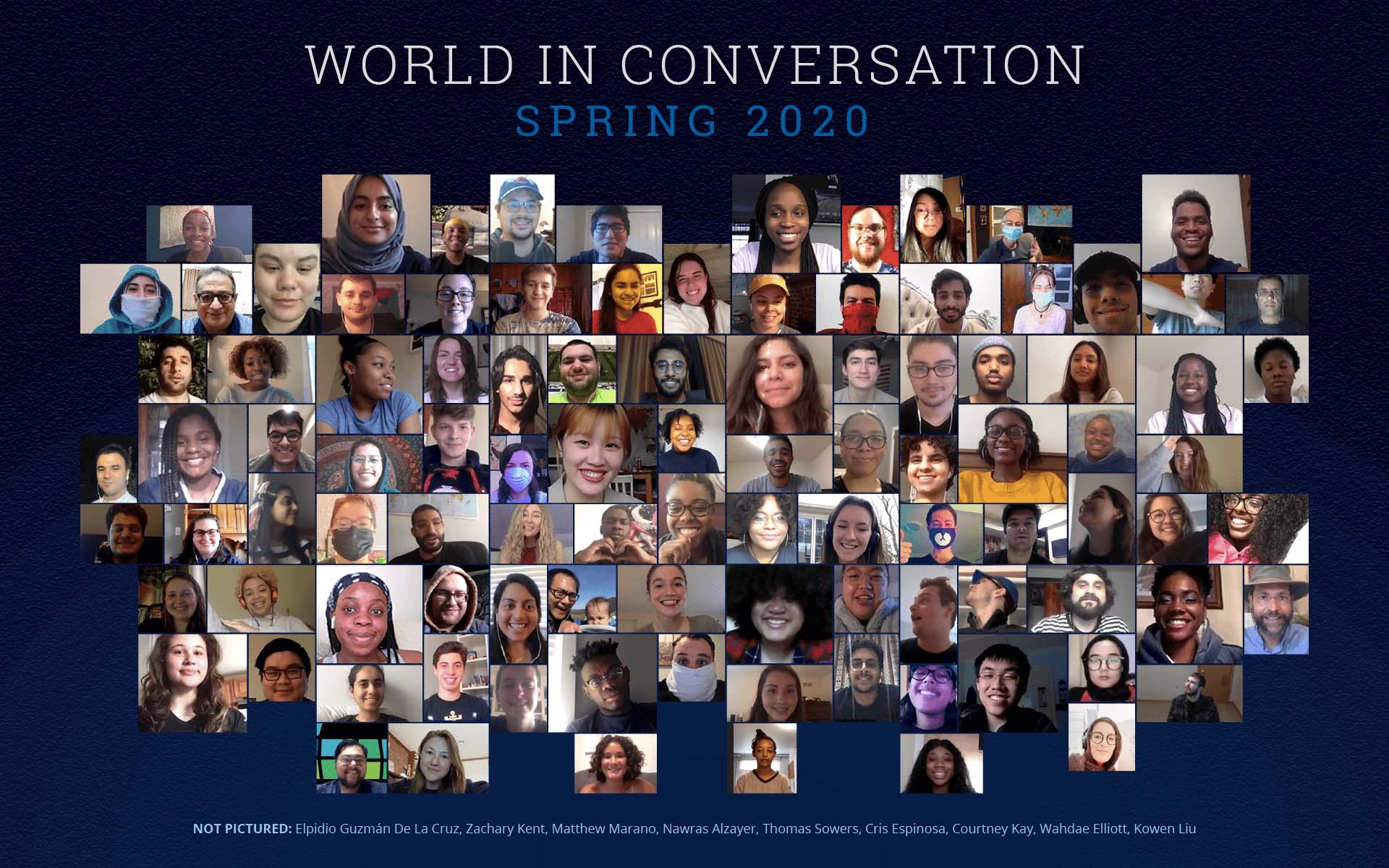
2020
We Learn to Adapt
During Spring break of 2020, Penn State University announced that all classes and work would be done remotely. World in Conversation had been deeply involved with video teleconferencing technology for a decade. But this was a powerful challenge. Could we transfer ALL of our classes, dialogues, meetings and operations to a online space? After five intensive days of working tirelessly, WinC staff made it happen, continuing all classes and programming uninterrupted.
2020


2022
The Center Celebrates its 20 Year Anniversary
On Labor Day weekend World in Conversation hosted Beyond Dialogue, an Alumni Summit held in honor of the center’s twentieth anniversary. 150 alumni from 7 countries and 21 states across the United States convened in State College, Pennsylvania. At this “reunion with a purpose” we reminisced about the past, explored the present learnings and envisioned the future of WinC.
2022
